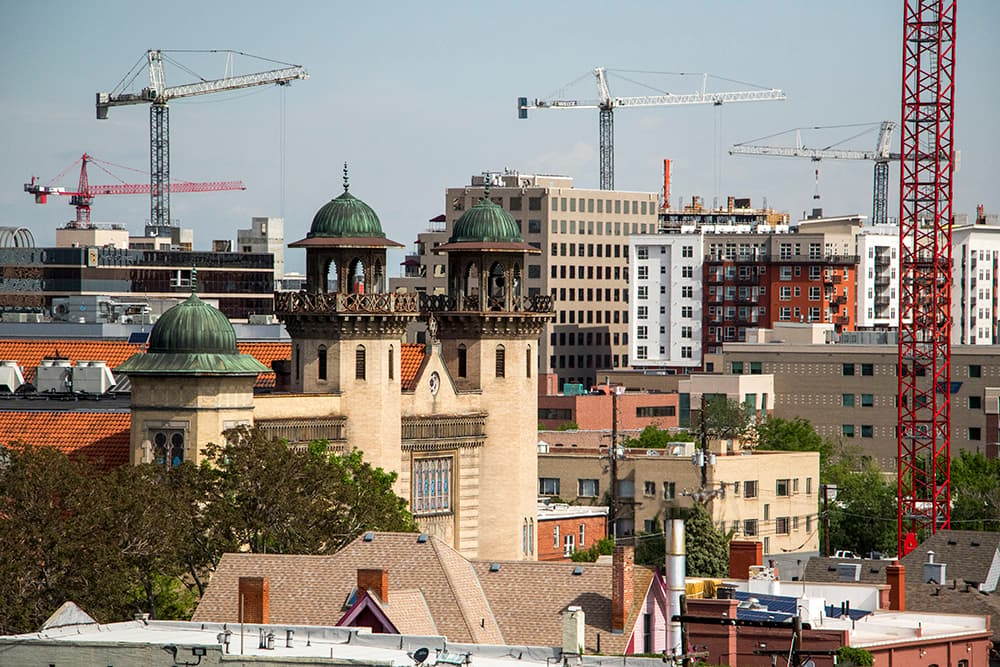Marijuana buyers will probably notice higher prices in Denver this October.
Under a new plan, the city will raise taxes on retail marijuana from 3.5 percent to 5.5 percent. Combined with other new money from the general fund, that would allow the city to double its efforts on affordable housing.
Right now, Denver expects that to fund the construction or preservation of 3,000 below-market units over the next 5 years, which would be about the same as the previous five years. That could increase to 6,200 units under the new plan, though not all would be finished within 5 years.
The new proposal, released this week, also would change who is in charge of some of the money. Millions of dollars from the affordable housing fund each year would go to the Denver Housing Authority, which is separate from the city, rather than to the city's Office of Economic Development, which has suffered some serious problems lately.
In all, the new money will amount to about $105 million, which could help the housing authority draw another $400 million from other sources.
Critics were quick to say it wasn't enough.
Kyle Zeppelin, the River North developer, said that the spending wouldn't keep pace with the cost of property inflation, and he claimed that the housing authority spends more time and money than "the rest of the market," he wrote on Twitter.
"No matter we're losing two affordable units for every one created under Hancock."
The latest estimate of low-income "cost-burdened" households in the city -- those paying beyond their means for housing -- has grown from 86,000 to 92,000 since last year. Rent increased by 46 percent on average between 2011 and 2016, according to a city report.
The city's own projections say that "a need exists" for at least another 15,000 units for extremely low-income renters alone. And the city is fighting an uphill battle: In 2018 and 2019, Denver may lose up to 2,300 designated affordable units as restrictions expire.
The city hopes to avoid that problem in the future by requiring that new homes built through DHA are permanently affordable.
Here's how it's supposed to work.
DHA expects to build some units over the next five years by speeding up its current Sun Valley, Westridge and Shoshone projects, but it also will buy up land across the city for future projects. It will be working with developers such as the Colorado Coalition for the Homeless and the Mental Health Center of Denver.
About half of the expanded fund will be used to buy land, with the other half going toward construction and preservation.
The focus will be on "small, geographically diverse sites across the city," according to city documents. About half will serve the poorest people -- those making less than 30 percent of the area median income. There will be limits on the amount that can be spent in any single area.
That part of the plan drew some criticism. The limit on property acquisitions -- they have to be 0.5 to 3 acres -- would cause the city to "miss future opportunities," said Jonathan Cappelli, executive director of the Neighborhood Development Collaborative. And Brad Segal, of the advocacy group All In Denver, said the limits were "arbitrary," though he praised the overall plan.
Councilwoman Stacie Gilmore said that she wanted the city to look at more programs to keep people in their homes. "It seems just a little bit slim, especially with what the need is," she said. City staff said they were working on new options. The new plan adds $1 million more per year for programs, including the one that helps with utilities and rent.
The administration also wants to end the "sunset" that would have forced the Denver City Council to renew the affordable housing fund in 2026.
What's next?
This plan has to go before the Denver City Council for votes on Aug. 20 and Aug. 27. The new money would be available in January.













